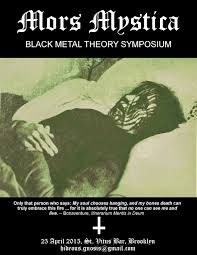Mass Intellectuality of the Neoliberal State: Mass Higher education, Public Professionalism, and State Effects in Chile
A new book by Nicolas Fleet
Palgrave Macmillan, 2021
Palgrave Studies on Global Policy and Critical Futures in Education
ISBN 978-3-030-77192-8
ISBN 978-3-030-77193-5 (eBook)
https://doi.org/10.1007/978-3-030-77193-5
From the Publisher:
This book engages with post-Marxist views on the productive and social transformations of post-industrial societies into cognitive capitalism. It provides extensive original analysis on the political roles that intellectual labour assumes in the post-bureaucratic organisation of the neoliberal state. It invigorates debates on state theory, cognitive capitalism, and student movements in Chile and Latin America.
In his book, Nicolas Fleet addresses the political effects of the massification of higher education and intellectual labor in the neoliberal state. Using the case of Chile, the author argues that public professionalism emerges in the mass university system, producing excesses of knowledge which infuse the state with political purpose at many levels. The emergence of the student movement in 2011, then the major social mobilization against the neoliberal state since the restoration of democracy in 1990, provided a clear manifestation of the politicization and ideological divisions of the mass university system. In conditions of mass intellectuality, public professionals mobilize their political affinities and links with society, eventually affecting the direction of state power, even against neoliberal policy. Through several interviews with academics, public professionals, and other documentary and statistical analyses, the book illustrates the different sites of political socialization and the ideological effectiveness of the emergent mass intellectuality of the neoliberal state.
Reviews:
“Fleet’s main contribution is to identify the key role played by a totally unexpected actor: a large mass of highly educated public servants, who are the product of the explosive expansion of education and for decades have also contested the neoliberal state from within.”
—Patricio Silva, Professor of Modern Latin American History, Leiden University, The Netherlands
“This highly original and readable study is going to re-invigorate debates on state theory and enliven current discourses on cognitive capitalism and the knowledge economy. The author’s insightful investigation of the Chilean university student and secondary school student movements is eye-opening and vitally relevant to the current struggles in Chile and all of Latin America today.”
—Stefano Harney, Honorary Professor, Institute of Gender, Race, Sexuality and Social Justice, University of British Columbia, Canada
“Nicolas Fleet shows how a mass intelligentsia grew out of a segregated education system in the world’s only truly neoliberal state. His masterly account of the bureaucracy, of education and of the clientelistic party system, offers a highly original explanation of the explosions of youth protest that opened the way to an unprecedented national consensus for the refoundation of the state in a Constitutional Assembly.”
—David Lehmann, Emeritus Reader in Social Science and former Director of the Centre of Latin American Studies, University of Cambridge, UK
The Author:
Nicolas Fleet is Dean of Social, Legal and Economic Sciences at the Universidad Católica Silva Henríquez, Chile. He received his PhD in Sociology from the University of Cambridge, UK. His research focuses on political sociology and higher education.
For more information and Table of Contents, see: https://link.springer.com/book/10.1007/978-3-030-77193-5
Posted here by Glenn Rikowski
@ ResearchGate: https://www.researchgate.net/profile/Glenn-Rikowski
@ Academia: https://independent.academia.edu/GlennRikowski




















